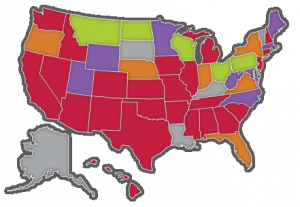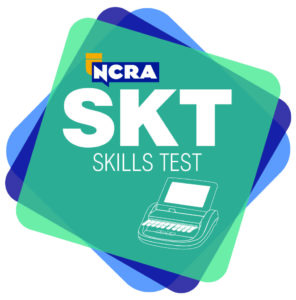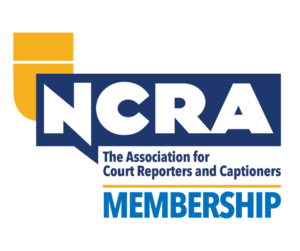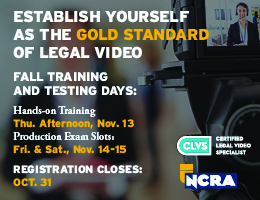NCRA members rate their certifications as one of the most important benefits the association offers.
When the New Hampshire legislature was considering ways to cut back in 2011, it decided to do away with a number of certification boards, from cosmetology to hunting and fishing guides. Also on the chopping block was the New Hampshire court reporting board. The New Hampshire Court Reporters Association acted immediately, organizing a strong grassroots campaign and directly lobbying the New Hampshire legislators about the importance of certification for court reporters. With the advice of NCRA’s Government Relations department, the NHCRA was able to delay the legislation for a year while convincing the legislators that keeping the court reporting board was a benefit not only to lawyers but to the public at large and eventually defeat the measure.
“We recognized the elimination of the New Hampshire Court Reporting Board as a poor way to serve the citizens of New Hampshire. The people of New Hampshire should not have to worry that their rights are being violated when they are involved in legislation because court reporters are unregulated. We were lucky in that we were able to education our legislators on the reasons why court reporters should be fair and impartial to everyone who needs their services,” says Megan Hefler, RDR, who chaired the NHCRA’s legislative committee at the time the legislation was proposed.
Many states require certification
Twenty-six states currently have mandatory certification of court reporters, although some require only official reporters or freelance reporters to be certified. In eight other states, certification is voluntary. That the majority of states believe that it is important to certify court reporters is a testament to the critical role they play in litigation and especially in the courts. As impartial record keepers, court reporters need to possess the right set of skills to fulfill their responsibilities.
“Certification, whether it’s administered through the states or through NCRA, establishes a baseline of skills so that the public can rely on court reporters both to be able to produce an accurate record and to be assured that the court reporters act in a fair and ethical way to all of the parties in litigation,” says Mary Cox-Daniel, RDR, CRR, CBC, CCP, a freelancer in Las Vegas, Nev., and chair of NCRA’s Council of the Academy of Professional Reporters.
Certification offers way to differentiate
Even in states that do not have mandatory – or even voluntary – certification, some reporters choose to pursue certification. For some people, it’s a matter of being able to differentiate services and, for others, it’s being able to be marketable no matter what the future brings. If you move from one state to another, holding a national certification, such as the RPR, can make it easier to find a new position as a freelancer or official court reporter. In fact, 22 states currently accept or use the Registered Professional Reporter (RPR) testing in place of the state certification or licensing examinations.
The benefits of certification go beyond the individual reporter and profession to the users of court reporting services. Certified practitioners must meet a minimum level of competency, follow a code of professional ethics, and abide by the rules of practice, so that judges, attorneys, and the public know that they are paying for quality.

| |
Mandatory |
| |
Voluntary |
| |
None or not required |
| |
Custom; see notes |
| |
No data |
| Maine | No CSR |
| Maryland | No CSR |
| Massachusetts | Not mandatory for state officialsVoluntary for freelancers (by state association) |
| Minnesota | Officials must have their RPR and have graduated from an NCRA certified program |
| North Carolina | Freelance: none requiredOfficial reporters: RPR or CVR and maintain all CEU requirements |
| Utah | RPR accepted |
| West Virginia | Mandatory for official reporters; voluntary for freelancers |
| Wyoming | Officials must have graduated from an accredited court reporting school and pass a 225 Q&A |












